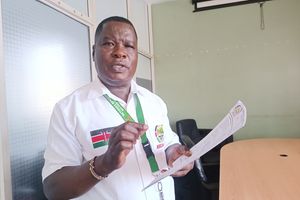
Many retirees now wish they had saved more for retirement, built their houses much earlier and even started side hustles much earlier.
If they had to do it all over again, three-quarters of retirees would plan their retirement better, save more, and create alternative income streams to sustain them in old age.
But many did not, missing a golden opportunity to set aside extra funds for a rainy day. As they now reflect, time can sometimes be brutal, denying one a second chance at life.
Many retirees now wish they had saved more for retirement, built their homes much earlier, and started side hustles sooner, according to a survey conducted by the Retirement Benefits Authority (RBA).
It is an in-depth survey that allowed retirees to look back on their working years, reflecting on the decisions they made when they were healthier and financially stable, and now evaluating their younger selves.
When asked what they would do differently if they could go back in time and plan for their future, 356 retirees said they would increase their savings, 188 would pursue alternative income-generating activities, 128 would plan for early retirement, and 101 would contribute to post-retirement medical funds.
Only 70 out of 975 respondents said they would make the same decisions they did when they were younger, the RBA survey observes.
Other retirees shared their reflections, saying, “I would be on the frontline advocating for a different taxation approach in pension schemes,” “I would live within my means,” and “I would have asked for a salary increment.”
Post-retirement
The RBA survey sought to establish the kind of lives thousands of Kenyans retire into after decades of work, shedding light on the realities elderly Kenyans face post-retirement.
It is a mix of many unforeseen challenges, and many retirees hope that younger Kenyans will avoid making the same mistakes they did.
“Based on the respondents’ comments, the top three pieces of advice for potential retirees were centred on early financial planning, investment in income-generating activities, and ensuring proper home and family preparation,” the survey notes.
It quotes several retirees advising young people, saying, “Do not wait until retirement to start building a home,” while another urged, “Start preparing for retirement as soon as you are employed. Build your home early and do not rely on your retirement benefits for this.”
Many retirees regret not managing their income more effectively during their working years, with a significant number wishing they had saved more.
As a majority now spend their pensions on expenses such as rent, loan repayments, and school fees, they lament that they wish they had known better when they were young and energetic.
Several retirees advised: “Invest in your children’s education and encourage them to be financially independent,” “Be business-oriented; employment is not permanent,” and “Invest in a project that will sustain you in retirement.”
For the hundreds of retirees surveyed by the RBA, this is a moment of reckoning. They now face the realities of life in retirement with weaker bodies and declining health, and many urge young people to “take care of their health and avoid drugs and alcohol.” Of the retirees surveyed by the RBA, 56 percent retired in the past four years, while 38 percent retired between 2018 and 2021.
The survey notes that 57 per cent of retirees used their lump sum pension to build or buy homes, pay school fees, invest in farming, or purchase land.
However, most of these investments have not yielded the expected returns. Among those who started businesses, only 14 per cent reported earning substantial profits.
Financial adjustments
The survey highlights a stark disparity between the pensions retirees receive and the salaries they previously earned, underscoring the financial adjustments they have had to make in retirement.
For instance, while 54 per cent of retirees earned between Sh41,000 and Sh100,000 during their working years, with an impressive 28 percent earning over Sh100,000, only a small minority (4 per cent) earned between Sh0 and Sh20,000.
But in retirement, the tables have turned. Now, 55 per cent of retirees receive a monthly pension of below Sh20,000, a fifth earn between Sh20,000 and Sh30,000, and only 11.5 per cent receive Sh50,000 or more.
This is despite the fact that the majority of retirees report having substantial expenses, including school fees (averaging Sh28,494 monthly), loan repayments (Sh22,719), household purchases (Sh4,705), and rent (Sh10,229). The high expenditure on school fees reflects another challenge many retirees face - supporting unemployed children, some of whom now have families of their own but remain financially dependent on their parents.
“Most respondents (26 per cent) indicated they would need an income exceeding Sh100,000 to maintain the lifestyle they had during employment,” the survey notes.
Only 9 per cent of retirees say they need less than Sh20,000 to survive, yet in reality, those living on such pensions are six times that number.
When asked about their general outlook on life in retirement, nearly two-thirds of retirees said they were generally happy and enjoying life, while 18 percent said making ends meet was becoming increasingly difficult.
One retiree remarked, “I am struggling with my health, and thinking about my unemployed children makes it worse.”
At least 171 retirees identified health as the most important aspect of retirement, 109 prioritised putting food on the table, and 75 considered educating their children their top concern.
This aligns with how retirees allocate their pensions. Many also emphasised the role of faith, with one stating, “Knowing God, the provider who has sustained me since employment and even now in retirement, is what keeps me going.”
A majority of retirees (57 per cent) believe that children should not be obligated to support their parents in retirement, stating that any assistance should be voluntary. Meanwhile, 24 per cent think children should help to some extent, 14 per cent completely disagree with the idea and only 8 per cent believe that children must assist their parents in retirement.












